Understanding the shareholding patterns of listed startups can be challenging. They not only have more variables to consider, such as ESOPs (sometimes as high as 10-15% of the total equity base), but also tend to have smaller founder/promoter holdings and larger private investor stakes at the time of their IPO. These private investors are often poised to exit once the company goes public.
The pace of such exits often depends on factors unrelated to the company's performance. For example, in 2022 and 2023, as central banks worldwide tightened liquidity to control inflation, major PE/VC firms like Tiger Global and Softbank sought to liquidate their global investments. Similarly, post-COVID, as relations between China and global economies became strained, many nations grew critical of Chinese investments (especially India, leading to Chinese FDI hit a 10-year low in FY23). This led Chinese giants like Alibaba and Tencent to accelerate the sale of their holdings in companies such as Zomato, Paytm, and PB Fintech in India.
Such selling in open markets significantly increases the free float that public market investors must absorb. Given that public markets in India are new to understand business models of loss making startups, its requires more time to access their right value, causing a delay in true price discovery.
Today, we discuss the case of India’s largest food delivery and quick commerce giant – Zomato - its rise, fall, and rise again! We hope you enjoy today's analysis, lets get started. (today blog is little lengthy, would recommend to read on the website)
Note: If our emails end up in the ‘promotions’ tab, please move them to inbox so you don’t miss out. Don’t forget to subscribe and join 3K monthly readers!
Zomato at time of IPO
As per the information disclosed in DHRP of Zomato, the top 10 shareholders had ~75% ownership in the company as show in the picture below.
The only Indian entities/individuals in this list are:
Info Edge (India) Limited
Deepinder Goyal (Founder)
The 2014 ESOP Pool Trust
Interestingly, the above mentioned 3 owners are the only ones remaining among the Top 10 holders. Other key holders such as Uber, Alipay/Antfin (Alibaba Group), Tiger Global (Internet Fund VI), Sequoia (SCI Growth Investments II), D1 Capital Partners LP, and Temasek (MacRitchie Investments Pte), have either completely exited or are in the process of doing so.
Life after IPO - When the Lock-in Ends!
Zomato was listed on Indian indices on July 23, 2021. Under SEBI guidelines at the time, pre-IPO investors, including institutional investors such as PE/VC firms, banks, and hedge funds, were restricted from selling their holdings for one year from listing.
During that period, the global landscape changed dramatically. The US Fed and other central banks became super hawkish, leading to turmoil in global markets, particularly in the high-beta tech sectors, which saw significant valuation compression as interest rates rose. From July 23, 2021, to July 23, 2022, Zomato's share price, along with its global peer DoorDash, plummeted by as much as 70% from their peak during that one-year period.
So on 25th July of 2022 (Monday) as the Lock-in of 1 year got over, there was a blood bath for Zomato’s shares. The worst of time had just begun!
Not just that there were sellers lining up, the ‘buyer interest was tepid and new investors may be ready to buy at a discount to ongoing market price’ as per Moneycontrol.
Shares worth Rs 1,000 crore are up for sale immediately and investment bankers have been building a book for block deals. - Moneycontrol, 25th July 2022
The Sellers are finally here!
First 15 days…
Immediately after the lock-in period ended on July 25, 2022, there was a wave of aggressive selling over the next 15 days, up to August 8. Based on our analysis from share holding changes and news articles, a few key sellers were identified. In total, shares worth approximately INR 2,086 crores were sold, accounting for ~ 5% of Zomato's market cap at the time, which stood at INR 40,000 crores. The actual selling during this period could have been much higher, including from smaller pre-IPO investors who didn’t come on our radar.
Life after 15 days until Today!
On 10 August 2022, NSE issued a renewed shareholding pattern following the completion of Zomato's acquisition of Grofers (later renamed as Blinkit) This all-equity deal resulted in approximately 8% dilution for existing investors, as Grofers’ investors, such as SoftBank and Tiger Global, received Zomato shares in exchange for their holdings. This transaction worsened the situation as it introduced more PE players to Zomato’s cap table, who could sell their holdings after completing a one-year lock-in period from the deal's completion (i.e., post-August 2023).
In totality, in the 2 year period from 10th August 2022 to 31st August 2024, roughly 38% of Zomato's equity was sold in the open market by the funds listed in the table below.
Now that is the MOST UNDERAPPRECIATED fact of Zomato’s rise from $5 Bn to over $25 Bn, as it happened when more than 43% of its total equity (5% before 10 August 2022, and 38% after that) was actually being sold by pre-IPO investors/owners in open market post the lock-in ended! Ownership of Uber, Alipay, Tiger Global Management, Sequoia and more have fallen to 0% or at below 1%.
Indian markets have never seen a similar situation before, where a listed entity continuously has shares being dumped into the market, increasing its free float, yet the share price doesn't stop rising and instead becomes part of the 'Top 50' most valued listed entities within the same timeframe.
𝐐: 40% was sold, did the retail investors buy it? What about Mutual funds?
Are retail investors buying Zomato?
People on social media have been discussing Zomato/Blinkit a lot in recent months. Is this impacting the share price? Since 'retail investors' are often considered the weakest hands in the market, this assessment is particularly important.
An indirect way to gauge rising interest is through Google Trends, which provides free access to search data and shows how trends have evolved over time. While not a perfect measure of stock interest and with its own limitations, it can offer some insights into investor behavior. People often search for the share price of popular stocks repeatedly, leading to discussion & purchase of the same.
For this analysis, we examined Zomato alongside two other companies with a market cap above INR 1 lakh crore that have seen a sharp rise of at least five times since February 2023:
Zomato
Suzlon
Trent
All three have been on an uptrend, increasing five to ten times since February 2023. We then analyzed search trends for various related terms and narrowed it down to these two relevant terms with sufficient data:
[Company + ‘Share’] - From July 2021 to Today
[Company + ‘Share Price’] - From July 2021 to Today
While we anticipated an increase in search behavior on Google for all 3, alongside the sharp rise in share prices, especially when comparing current interest to past search trends, the results differed for Zomato compared to the other two companies. Unlike Suzlon and Trent, which have seen a rise in search interest consistent with their increasing share prices over the past two years, Zomato has not experienced a significant uptick in search activity relative to its past history in 2021 and 2022.
Another way to gauge retail investor interest is by examining changes in the total number of unique shareholders of Zomato. Of these shareholders, approximately 98-99% tend to be 'Resident Individuals', each having a holding of nominal share capital of up to Rs. 2 lakhs.
Following is a graph representing the number of unique shareholders (in lacs) which has been steady/rising:
We see that number of unique shareholders have slightly risen over a period of 2 years, with January to June 2024 period adding roughly 4 lac new investors. But in terms of total % of shareholding it actually isn't a big number. New retail investments buying Zomato over first 6 months of 2024 did not even lead 1% rise in retail shareholding in the company. This % is minuscule also because just recently we saw Alibaba Group selling 2.40% shareholding of Zomato in a single day like many pre-IPO holders. Overall the retail holding has been in the range of 7% to 10% of Zomato’s holding (as shown in chart below) in the last 2 years, despite the huge continuous supply of shares.
If not Retail, are Mutual Funds buying?
Yes, it has been mutual funds that have absorbed a significant portion of the shares hitting the market. The ownership percentage of domestic mutual funds has roughly tripled, increasing from 4.5% in June 2022 to over 12.5% in June 2024, as shown in the table:
Few mutual funds like Motilal Oswal have made big money on the share by becoming super bullish on the share in mid-2023. Other funds houses who have bought Zomato in a big way are Mirae, Axis, ICICI, Kotak, Nippon & Franklin.
Even though the % holding rose for mutual funds by 8% in last 2 years, this is not good enough to absorb the 43% supply of share we have been mentioning.
Foreign Institutions!
“Whole world seems to be so bullish on Zomato!” - CNBC Anchor
Many sell-side foreign brokerage houses, such as Goldman Sachs, UBS, JP Morgan, and Morgan Stanley, have been very bullish on Zomato in their reports for past several quarters. It is often said that money is made by going against the tide; when everyone is buying shares, it might be wise to avoid buying the same. However, it's important to note that these foreign brokerages have attracted a lot of buy-side foreign funds, including long-term pension funds, to invest in Zomato shares.
As per NSE data, Foreign Portfolio Investors today own 46% of Zomato which was at 9.85% in June 2022 under Category 1 & 2. Here is where the majority chunk of incremental addition of ~36% equity ownership addition has occurred. (There is also a minor NSE’s reclassification factor here, but even after accounting that, new FPI shareholding rise is the major reason for their ownership rise). In almost all the block deals where the pre-IPO investor is selling its shares, these are the banks who manage the transaction and buy it from the market.
Here are few long terms investors who have bought in last 2 years(having 1%+ stake):
To Summarize….
Zomato has experienced significant selling and exits from its pre-IPO holders since the lock-in period ended, with roughly 43% of its equity coming to the open market in the last two years. Despite this continuous selling and the increase in free float, the share price has continued to rise, with Zomato’s market cap growing from $5 billion to $25 billion.
Retail investors have contributed little to this price increase; instead, it is the institutions—both domestic and foreign—that have driven the rise in value. While the selling pressure has predominantly come from foreign entities, the primary demand for Zomato’s shares has also been from foreign investors.
Finding Outperformers is a free-to-access website, and each blog takes a month of effort to finalize. If you've read this far and you find our research useful, consider supporting our efforts by contributing here:
We hope you enjoyed reading the blog. You can find me (Aditya) here. Let us know your feedback and what more you want us to cover.
Read our previous publications:
Hyperpure: Zomato’s Strategic Engine
Hyperpure - Zomato's least-discussed subsidiary now quietly contributes about 27% to the company's total revenue today is actually fueling Blinkit's growth!
Discover how...
Disclaimers-
We are not a SEBI registered advisor; personal investment/interest in the shares exists for the company mentioned above; this isn’t investment advice but our personal thought process; DYOR (do your own research) is recommended; Investing & trading are subject to market risk; the decision maker is responsible for any outcome.




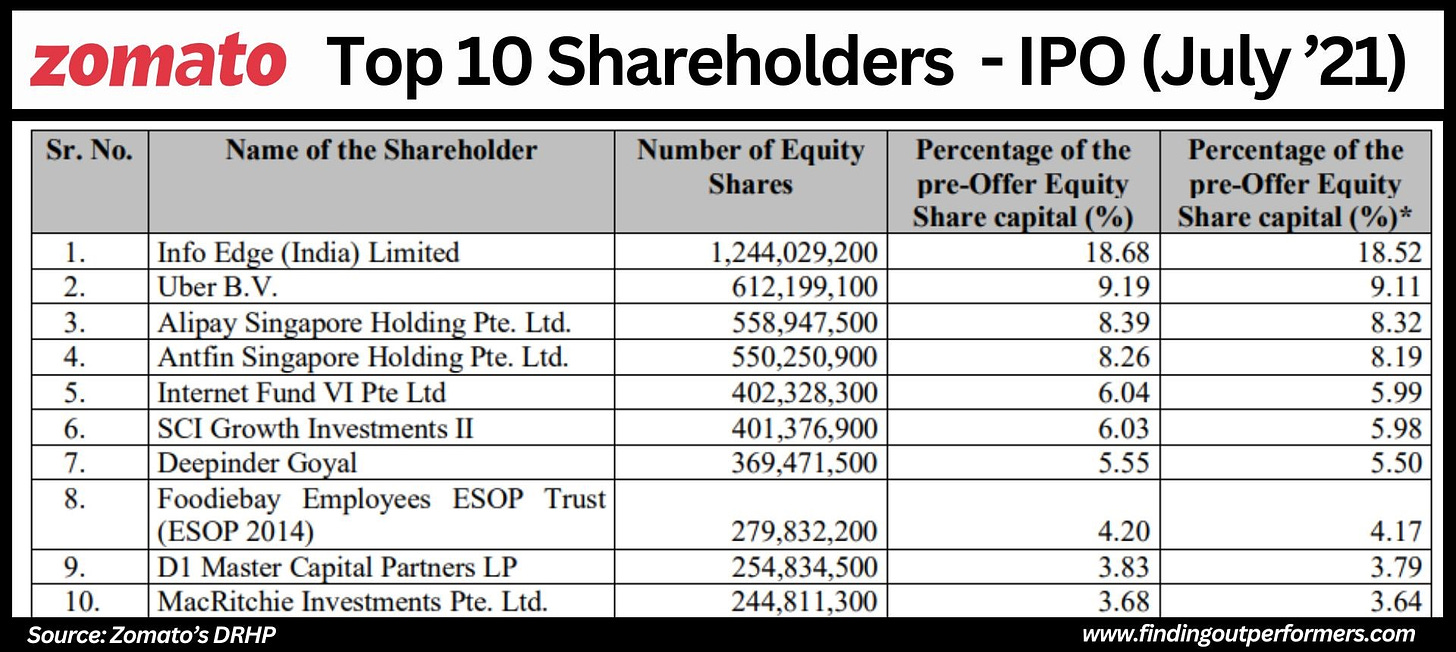



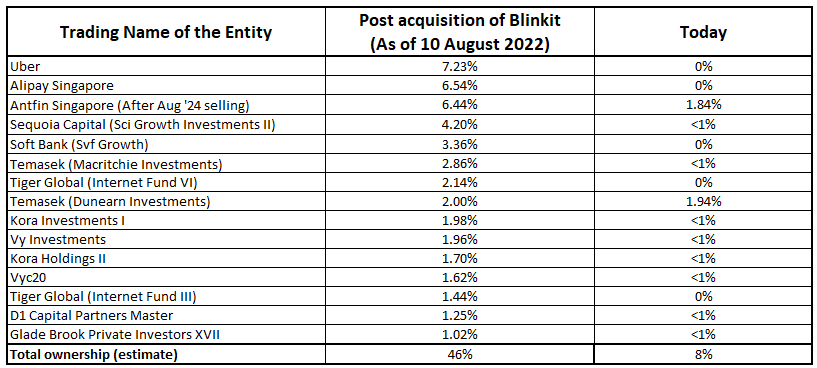
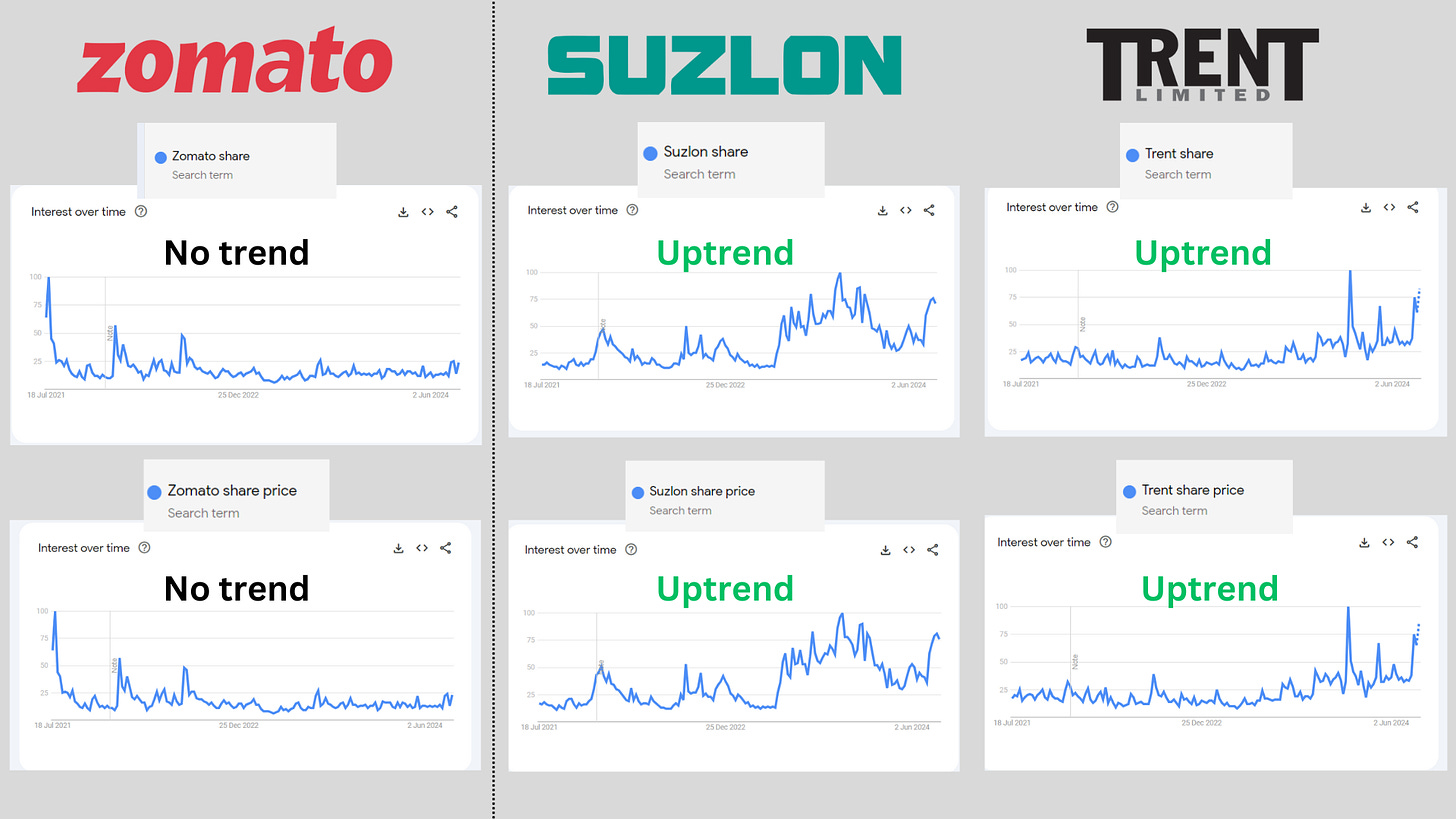
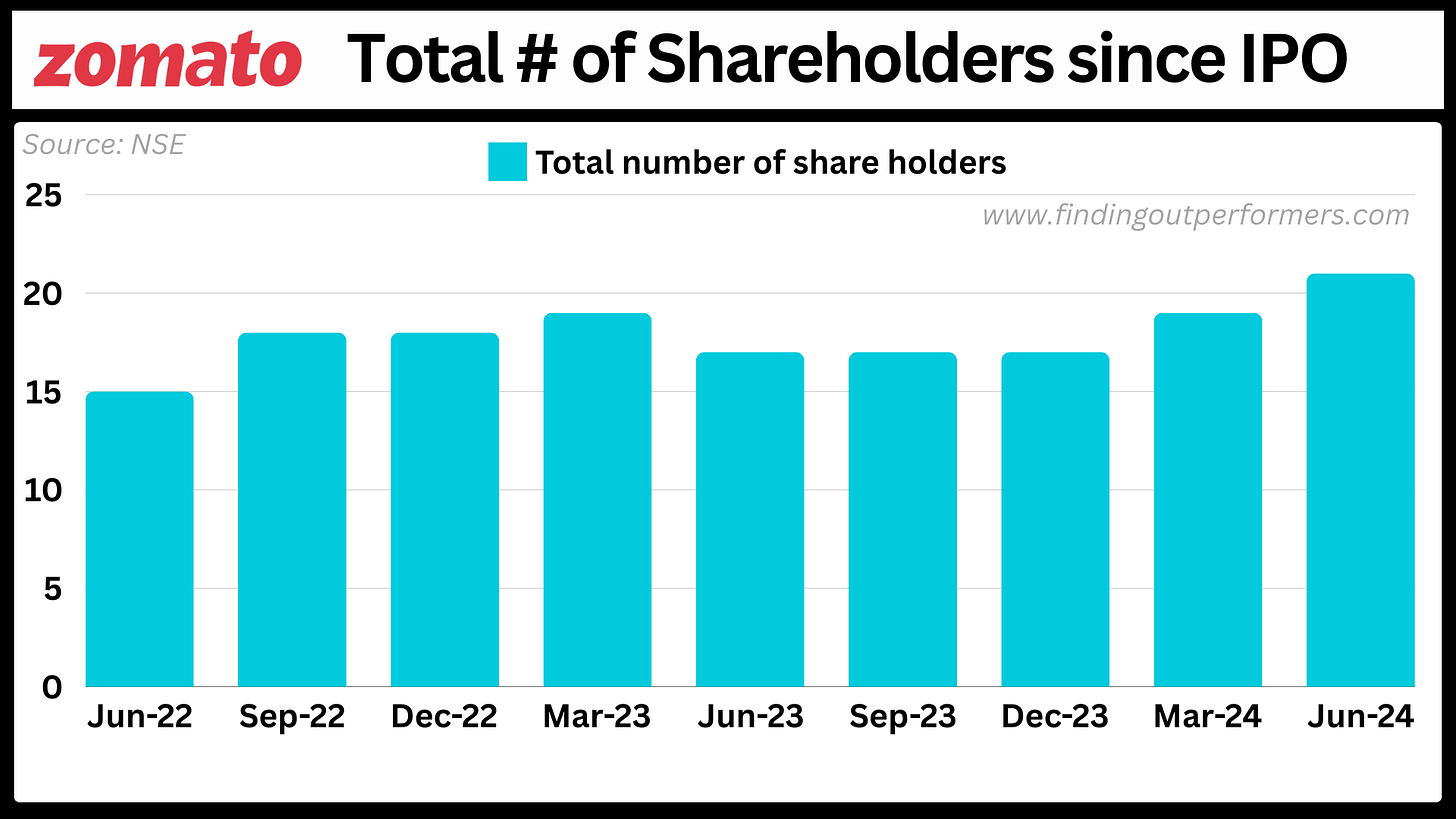
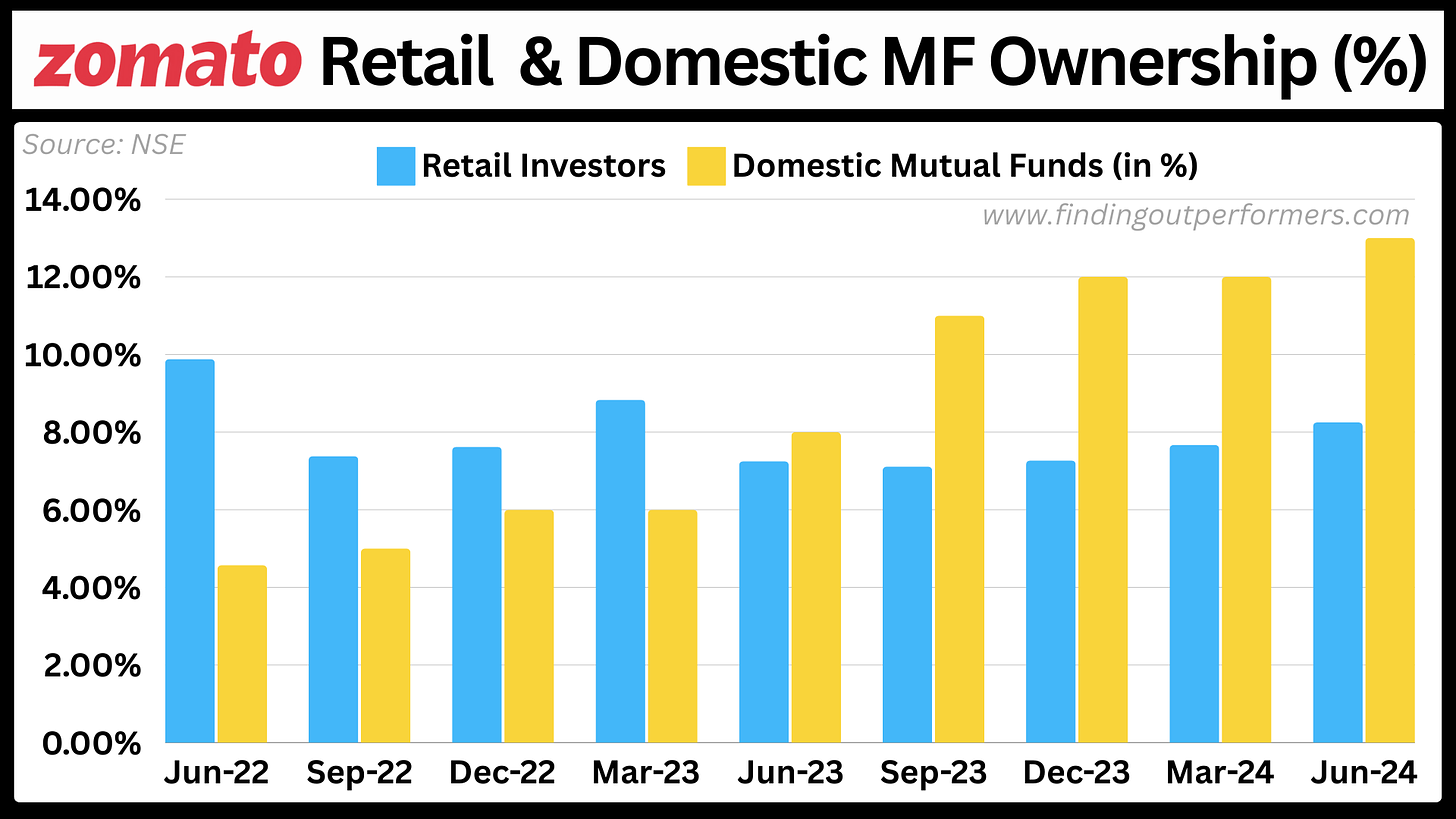




An interesting read and concise explanation. Thanks for sharing this piece!
Excellent explanation thanks a ton